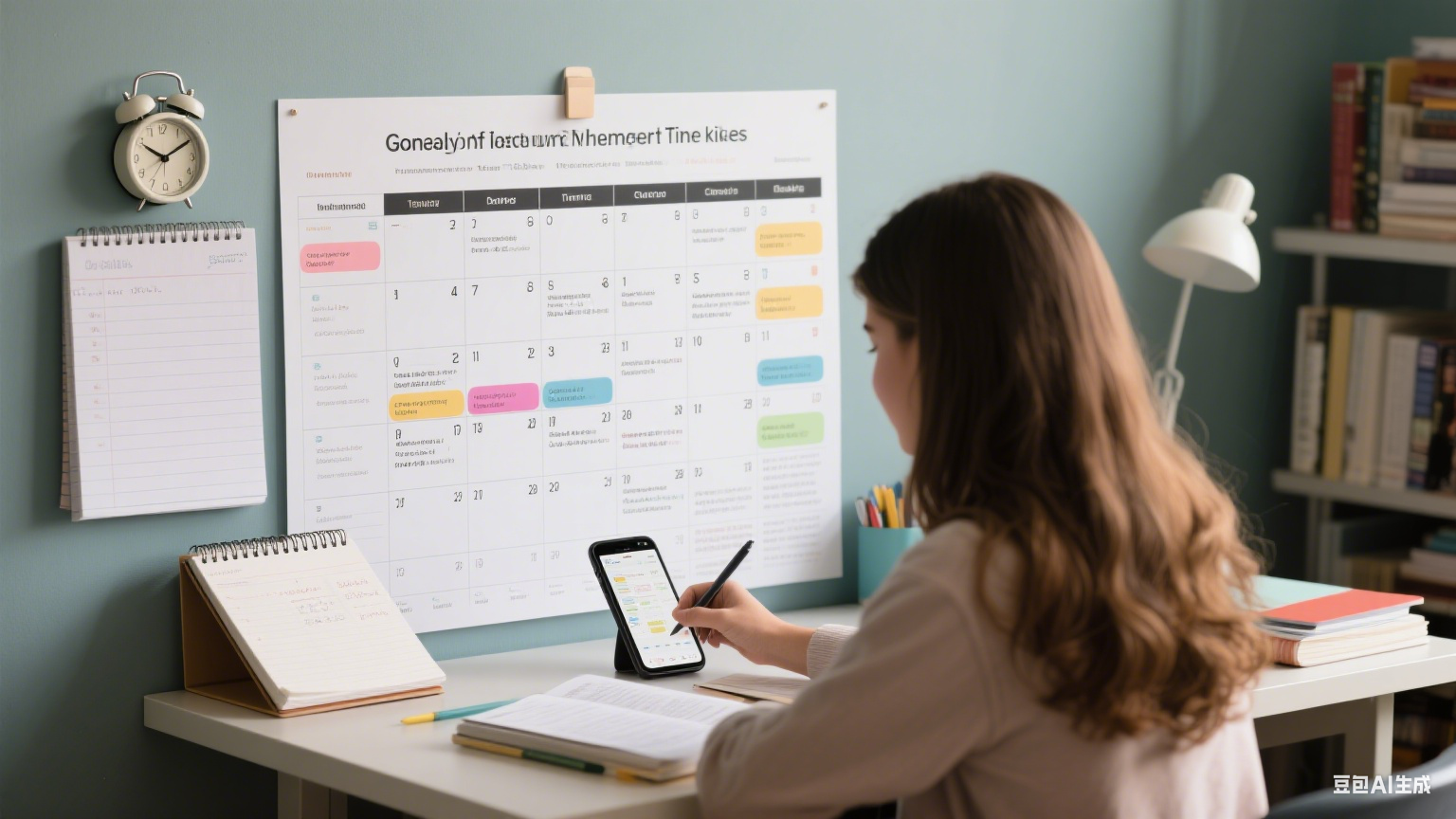拯救你的日程!课业、社交、放松全兼顾

Attending classes, studying for exams, making friends, and taking time to relax can quickly occupy your schedule. If you often find yourself wishing there were more hours in the day, this guide will offer time management tips so you can accomplish what you need to do, have fun with your friends, and save some valuable time for yourself.
Create a calendar well ahead of time with all your upcoming deadlines, exams, social events, and other time commitments so you can see what’s coming up. Keep your calendar in a place where you can see it every day, such as in your planner or on your wall above your desk. If you prefer a digital calendar, check it first thing every day to keep track of important events.
After you’ve created your calendar, set periodic reminders to stay on track — such as completing a study guide in advance or scheduling a meeting for a group project. You can set an alarm on your phone, write it down in a physical planner, or add an alert to your digital calendar. These reminders will help you avoid last-minute rushes during particularly busy days.
Each person’s day is unique, so make sure your schedule works for you. If you typically start your day energized, plan to study or accomplish chores during that time. If you experience an afternoon slump, give yourself that time to take a guilt-free TV break or see friends.
Sometimes there really is too much to do in too little time. In these instances, take just a few minutes to evaluate your priorities. Consider which deadlines are most urgent, as well as how much energy you have. If you are able to complete simple tasks first, try getting them out of the way before moving on to tasks that require a lot of focus. If you are struggling to accommodate everything in your schedule, consider what you can postpone or what you can simply say no to.
Finally, remember to make time for fun and yourself, seek support when needed, and stay realistic and flexible in your approach.
原创编写 版权所有 侵权必究! 每日更新 个性化阅读 英语飙升!1. 1.What is the main purpose of the passage?(推理判断)
A To describe student life.
B To offer suggestions.
C To tell a personal story.
D To analyze a problem.
2. 3. Why does the author suggest studying during your energized hours?(推理判断)
A To improve focus.
B To follow a fixed routine.
C To avoid social events.
D To finish early.

